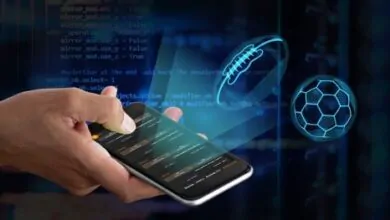The Future of Free Text-to-Speech Apps

Over the past decades, technology has rapidly improved our means of communication. Such an innovative stride in content accessibility includes free text-to-speech apps. These applications provide voice-over of written text making it more understandable for people with different abilities. With the increasing demand for this technology, there is a need to look into the possible improvements and the prospects for future free text-to-speech applications.
Enhanced Natural Language Processing
Natural language processing is now used by modern free text to speech app to deliver excellent speech. Nevertheless, much more needs to be done. Future of such apps is linked with enhanced natural language processing procedures that produce even more human-sounding speech. The inclusion of sophisticated linguistic models into these applications will go beyond merely accurate identification of words but will also capture how language, tone, and emotion interact, translating into a richer experience for the user.
Multilingual Support
With globalization being a reality; communication must be as free of boundaries as possible; even in different languages. To be multilingual, future free text-to-speech applications should remove language barriers. The apps will include some high end translation capabilities which facilitate conversion of written text and document into speech from any language, instantly. This will ensure that cross-cultural communication is made simpler and more open for everyone.
Customizable Voice Profiles
There are only few free text-to-speech app in the market currently limiting choices available to the user. Nevertheless, personalized voice profiles have a promising future. Machine learning-enabled voice will power these apps and make them as distinct and personalized as possible. Users will customize different attributes including tone, pitch, and accent such that the voice will sound like their personality and reflect what they need. Such a high degree of customization will make the synthesized speech even more relevant and appealing.
Integration with IoT Devices
The development of IoT has made our homes, offices or buildings like never before. The integration of free text-to-speech apps with IoT will provide more options than just phones or computers in the future. Think of being able to command your smart home gadgets and get critical data through synthesized voice from any device while you are at home. Our life is made more convenient and efficient as our lives become easier.
Futuristic Approach
The potential of the future is much more promising. These applications will be able to transform the text to speech spontaneously based on progress made on machine literacy as well as computer technology.
Free text to speech app integration with VR/AR is an astonishing possibility of future? Think of putting on a VR headset and being able to hear text converted into speech, turning words into three-dimensional reality. Such integration allows for completely unprecedented gameplay, educational opportunities, and entertainment that entices listeners like no other audio.
Conclusion
Free text to speech app looks more likely to continue existing in the future since technology keeps growing. These include increased natural language processing, personalized voice commands, Internet of Things compatibility, and others that will change how we interact and receive content. It would also affect accessibility for the blind and would incorporate VR and AR into new areas of entertainment, education, and communications.





